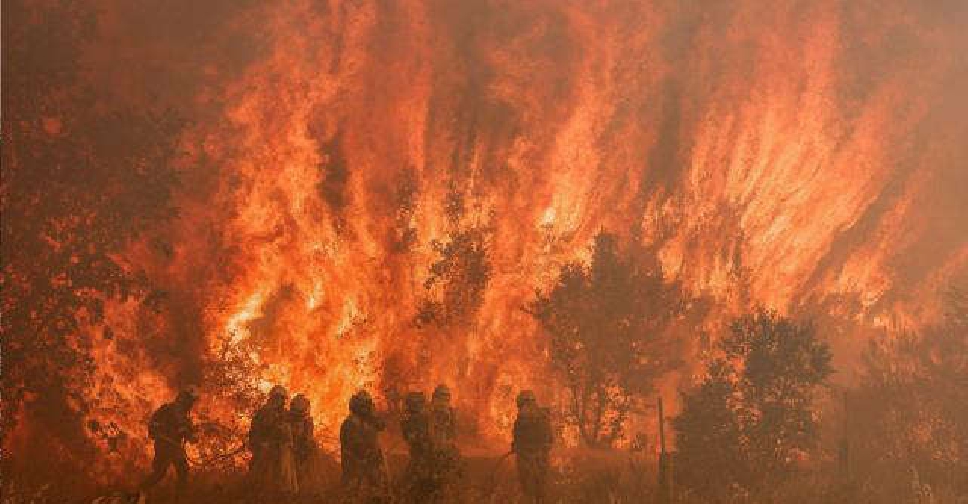
Spain's first major wildfire of the year raged in the eastern Valencia region on Friday, destroying more than 3,000 hectares (7,413 acres) of forest and forcing 1,500 residents to abandon their homes, authorities said.
An unusually dry winter across parts of the south of the European continent has reduced moisture in the soil and raised fears of a repeat of 2022, when 785,000 hectares were destroyed in Europe - more than double the annual average for the past 16 years, according to European Commission (EC) statistics.
"These fires we're seeing, especially this early in the year, are once again proof of the climate emergency that humanity is living through, which particularly affects and ravages countries such as ours," Spanish Prime Minister Pedro Sanchez told a news conference in Brussels.
In Spain, 493 fires destroyed a record 307,000 hectares of land last year, according to the Commission's European Forest Fire Information System.
Firefighters using 18 planes and helicopters worked throughout the night and on Friday to tackle the blaze near the village of Villanueva de Viver, in the Valencia region.
Emergency services evacuated eight communities, said Gabriela Bravo, the regional head of interior affairs.
While firefighters believed they were managing to control the spread of the flames, strong winds and "practically summertime temperatures" could reactivate it, Bravo said.
Spain is experiencing a long-term drought after three years of below-average rainfall.
The weather will be drier and hotter than usual this spring along Spain's northeastern Mediterranean coast, increasing the risk of wildfires, meteorological agency AEMET told Reuters last week.
A European Commission report this month observed a lack of rain and warmer-than-normal temperatures during the winter, raising drought warnings for southern Spain, France, Ireland, Britain, northern Italy, Greece and parts of eastern Europe.
"There is every reason to fear that this year too there will be numerous and widespread events," said Lorenzo Ciccarese, a researcher at the Higher Institute for Environmental Protection and Research (ISPRA) in Rome.
The Commission report warned that low levels of water could affect strategic sectors including agriculture, hydropower and energy production.
Olive oil production in the European Union for 2022-23 will fall by half compared to the previous season, according to official estimates, largely due to a drop in output from Spain caused by the drought.
Dry spells have also stricken production in Portugal and Italy.



 Israeli attacks on Gaza killed 60 people in 24 hours
Israeli attacks on Gaza killed 60 people in 24 hours
 Trump fires National Security Agency director
Trump fires National Security Agency director
 Israel steps up Syria strikes, says Turkey aims for 'protectorate'
Israel steps up Syria strikes, says Turkey aims for 'protectorate'
 US sending Israel 20,000 assault rifles that Biden delayed
US sending Israel 20,000 assault rifles that Biden delayed



